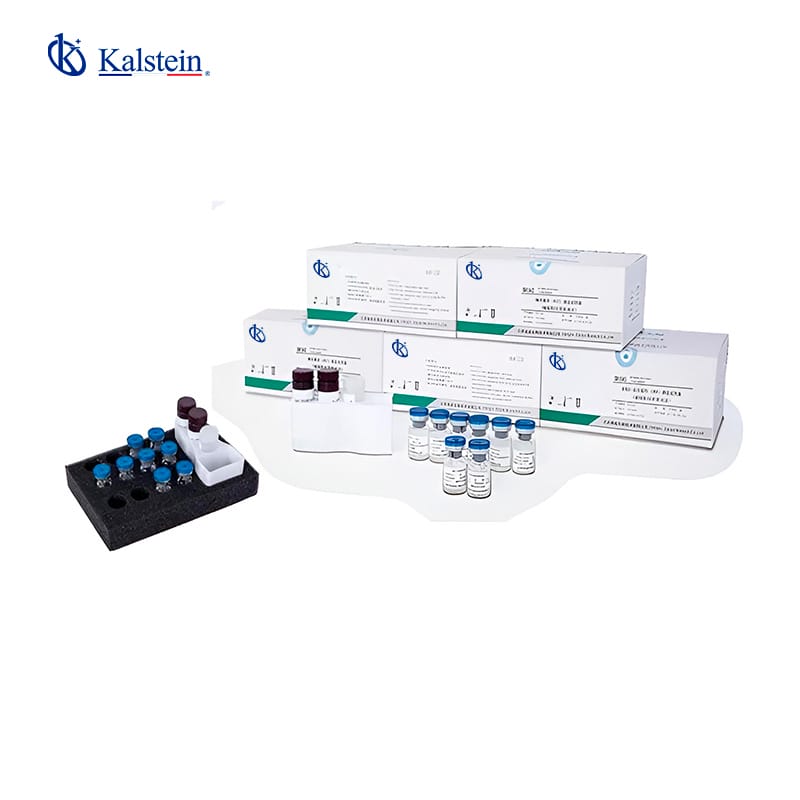Product Description
Kalstein’s range of cardiac marker tests, from models YRA363 to YRA367, offers cutting-edge solutions for the precise diagnosis and monitoring of cardiovascular health. These models focus on different essential biomarkers, including NT-ProBNP, D-Dimer, MYO, CK-MB, and hs-cTnI. Each of these parameters is crucial for the early detection and management of cardiac conditions. By employing the enzymatic chemiluminescence technique, these tests ensure high sensitivity and specificity, allowing for accurate and reliable results in clinical settings.
The luminous principle employed in these tests is the enzymatic chemiluminescence method, facilitated by alkaline phosphatase as the luminous marker. Each test kit is available in variations offering 100, 50, or 48 tests per kit, tailored for different laboratory scales and requirements. The competitive method is the underlying principle in the detection process, ensuring that the presence of specific cardiac markers in serum samples is identified with high precision.
Technical Specifications
| Model | YRA363 | YRA364 | YRA365 | YRA366 | YRA367 |
| Tested Parameter | NT-ProBNP | D-Dimer | MYO | CK-MB | hs-cTnI |
| Luminous principle | Enzymatic chemiluminescence | ||||
| Luminous Marker | AP (alkaline phosphatase) | ||||
| Specification | 100 test/kit | ||||
| 50 test/kit | |||||
| 48 test/kit | |||||
| Principle | Competitive Method | ||||
| Components | Magnetic beads | ||||
| Anti-A/Anti-B | |||||
| Calibrators | |||||
| QC1 | |||||
| QC 2 | |||||
| Sample | Serum | ||||
| Storage | 2-8°C | ||||
Market Price
In the diverse market of diagnostic kits, cardiac marker tests like the YRA363 to YRA367 are competitively priced, reflecting their advanced technological features and high efficiency. Prices vary depending on the number of tests per kit and the specific biomarker being targeted. Generally, the price range for these kits starts from $200 to $700, depending on the model and the quantity, ensuring that labs can choose the option that best fits their budget and diagnostic needs.
Given the precise nature and advanced technology integrated into these kits, they remain an invaluable investment for medical laboratories. Potential buyers are encouraged to compare different offers and check for any promotional deals available through Kalstein’s platform.
Frequently Asked Questions
What are the main uses of the YRA series cardiac marker tests?
The YRA series is predominantly used for diagnosing and monitoring cardiovascular diseases by employing precise biomarkers to yield reliable insights into a patient’s heart health.
How should these kits be stored?
These test kits must be stored at a temperature range of 2-8°C to maintain their efficacy and accuracy.
Advantages and Disadvantages
The main advantage of the YRA series cardiac marker tests is their use of enzymatic chemiluminescence, which provides high sensitivity and specificity. This ensures excellent diagnostic accuracy, which is crucial in critical healthcare scenarios. Additionally, the versatility across different models allows comprehensive coverage of various cardiac biomarkers, enhancing diagnostic precision.
However, a potential drawback could be the initial investment cost, given the advanced technology used in these kits. Laboratories must evaluate their specific needs and logistical capacities when choosing the appropriate model from this series.
Product Use in the Field
The YRA series cardiac marker tests are primarily implemented in clinical laboratories and hospitals for the assessment of patients at risk or suffering from cardiovascular conditions. Their ability to swiftly deliver precise results greatly aids clinicians in making timely decisions regarding patient management.
The deployment of these kits in routine screenings among high-risk populations is also noteworthy. They serve as a first line of testing, helping healthcare professionals detect underlying cardiac issues before they escalate.
Recommendations
For optimal use of the YRA series cardiac marker tests, it is crucial to adhere strictly to the storage conditions and employ standard laboratory procedures. Regular calibration and quality control checks are recommended to ensure the continued accuracy of results.
Additionally, laboratory technicians should be adequately trained in handling these tests to maximize their diagnostic potential. An understanding of each biomarker’s role in cardiovascular health will further enhance the interpretative value of the test results.
If you’re searching for a fusion of innovation and quality, you’ve come to the right place. At Kalstein, we offer you the luxury of exploring our exclusive catalog of laboratory equipment. We manufacture each piece of equipment with a level of excellence. Our intuitive and agile online purchasing channels are designed for your convenience, ensuring the most friendly prices. Don’t hesitate any longer; we bring science to life, and it’s time to become part of our community. https://kalstein.net/en/product/cardiac-marker-test-yra363-yra367/


